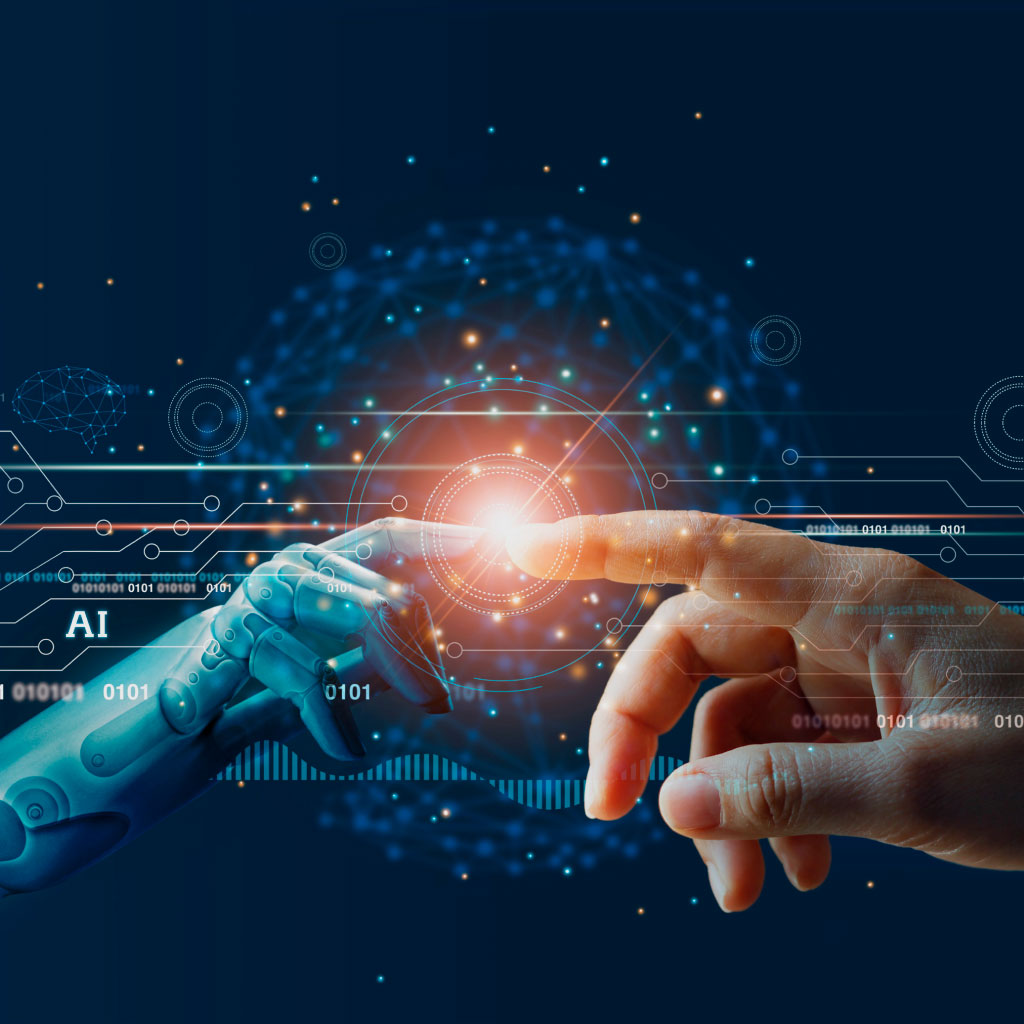A Complete Guide to Artificial Intelligence Engineering
Everywhere you look, artificial intelligence (AI) is present: cell phones, cars, computers, TVs, and hospitals. Made to mimic human behavior, machines are completing tasks that are either too hard for humans, or we simply just don’t want to do. The debate about AI taking over jobs is a heated topic. One thing is certain, however. Behind AI are a group of highly-skill professionals who work hard to meet our AI demands. What is artificial intelligence engineering and who are the people that create intelligent machines?
What is Artificial Intelligence Engineering?
AI engineering is the process of combining systems engineering principles, software engineering, computer science, and human-centered design to create intelligent systems that can complete certain tasks or reach certain goals.
To better explain AI engineering, it is important to discuss AI engineers, or some of the people behind making intelligent machines. AI engineers work with large volumes of data to create intelligent machines. Sophisticated algorithms help businesses in all industries including banking, transportation, healthcare, and entertainment. AI is the disruptive technology behind virtual assistants, streaming services, automated driving, and critical diagnoses in medical centers.
What Do AI Engineers Actually Do?
AI engineers build AI models using machine learning (ML) algorithms and deep neural networks (DNN) to draw business insights. They must:
- Have sound knowledge of programming, software engineering, and data science
- Use different tools and techniques to process data
- Develop and maintain AI systems
Some responsibilities of AI engineers are:
- Build AI models from the ground up and explain results to product managers and stakeholders
- Develop, test, and deploy AI models
- Convert machine learning models into APIs so other applications can utilize it
- Build data ingestion and data transformation infrastructure
- Work alongside data and business analysts
- Execute statistical analysis and tune results to extract better insights
- Automate infrastructure used by the data science team
- Create and manage AI development and production infrastructure
AI engineers have a key role in industries since they have valuable data that can guide companies to success. The finance industry uses AI to detect fraud and the healthcare industry uses AI for drug discovery. The manufacturing industry uses AI to reshape the supply chain and enterprises use it to reduce environmental impacts and make better predictions. AI engineers provide essential solutions.
What are the Most Important Skills an AI Engineer Must Have?
An AI engineer should possess a foundation in computer science and other knowledge including:
- Programming skills
- Neural networks
- Data Science
- Statistics and probability
- Data Engineering
- Exploratory data analysis
Other general skills help AI engineers reach success like effective communication skills, leadership abilities, and knowledge of other technology. Other disruptive technologies AI engineers can work with are blockchain, the cloud, the internet of things, and cybersecurity. Companies value engineers who understand business models and contribute to reaching business goals too. After all, with the proper training and experience, AI engineers can advance to senior positions and even C-suite-level roles.
Tips on How to Become an Artificial Intelligence Engineer
Becoming an AI engineer is a challenging task. Besides having deep computer science knowledge, an AI engineer must be adaptable and valuable to a company. Here are some tips that can guide you toward your goal:
1. Education
Many job postings for an AI engineer position require a master’s degree. At the same time, many job postings mention they are flexible. Some of the degrees employers look for are:
- Computer Science
- Statistics
- Mathematics
- Electrical Engineering
- Physics
- Economics
2. Technical Skills & Concepts
Honing your technical skills is extremely critical if you want to become an artificial intelligence engineer. Programming, software development life cycle, modularity, and statistics and mathematics are some of the more important skills to focus on while obtaining a degree. Furthermore, essential technological skills in big data and cloud services are also helpful.
3. Experience
It’s important to have some experience in AI engineering to find a suitable position. Starting in a company as an intern may help. The majority of offers come from big firms with more than 10,000 employees. Further, most job postings come from information technology and retail & wholesale industries. There is also a substantial amount of open job positions in consulting & business, education, and financial services. This information can help when finding entry-level positions.
4. Geography
Finding tech job positions means following tech companies. While many tech companies are located in the United States, there are many large companies located all over the world. Additionally, tech startups are a global movement. That means you can find an AI engineering position in most countries. Nevertheless, the United States has a large amount of AI engineering positions.
5. Continuing Education
Continuing your education is helpful in every industry. Taking courses in digital transformation, disruptive technology, leadership and innovation, high-impact solutions, and cultural awareness can help you further your career as an AI engineer.
The Future of AI
Businesses need to embrace AI. Subsequently, the future of artificial intelligence and artificial intelligence engineers is promising. Many industry professionals believe that strong versions of AI will have the capabilities to think, feel, and move like humans, whereas weak AI—or most of the AI we use today—only has the capacity to think minimally.
This AI evolution translates to a higher job outlook for AI and ML engineers.
Gain Knowledge in Disruptive Technology at MIT Professional Education
Ai is the moving force behind machine learning, the internet of things, cloud services, and cybersecurity. Learning about these disruptive technologies helps you reach your career goals. MIT Professional Education offers courses in technology, sustainability, leadership & innovation, and high-impact solutions that can help you reach your career goals in AI engineering and beyond. Some courses from MIT Professional Education that can boost technology roles include:
- Blockchain: Disruptive Technology
- Digital Transformation: From AI and IoT to Cloud, Blockchain, and Cybersecurity
- Cloud & DevOps: Continuous Transformation
- Digital Platforms: Designing Two-Sided Markets from APIs to Feature Roadmaps
- Industrial Internet of Things: From Theory to Applications
- Innovation and Technology
- Machine Learning: From Data to Decisions
- Management of Technology: Roadmapping & Development
- New Space Economy: Technologies, Products, Services, and Business Models
- Smart Manufacturing: Moving from Static to Dynamic Manufacturing Operations
Find out more on how MIT Professional Education can help you reach your career goals.

Clara Piloto
Director of Global Programs, Director of Digital Plus Programs
MIT Professional Education
Massachusetts Institute of Technology
professional.mit.edu
